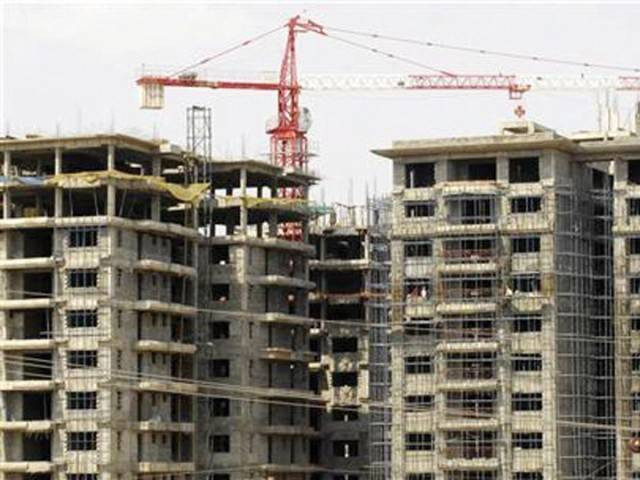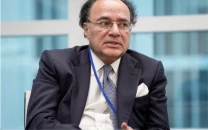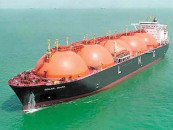No recovery in sight for realty sector
Market faces stagnation, but has potential for speedy and abnormal returns

Pakistan's real estate sector has been facing stagnation for the past few years and people associated with the sector are pessimistic too as they do not see a significant recovery in the near future.
The real estate sector still remains one of the most lucrative, for both local and overseas investors, having the potential for speedy and abnormal returns in a short span of time.
"In 2024, the market is navigating a phase of stagnation after years of abnormal price hikes, driven by a combination of policy decisions, overseas investments and changing demand patterns," said Wassem Tariq, a Lahore-based realtor.
He added that the situation varied across Pakistan. Though prices have not declined significantly in this period of stagnation, it is the genuine buyers, looking to build new homes, who are providing the lifeline during these challenging times. According to market stakeholders, the Defence Housing Authority (DHA) and Bahria Town in Karachi show varying price trends, with plots ranging from Rs25 million to Rs100 million depending on location and size.
In Lahore, different phases of DHA have seen stability, with one-kanal plots priced between Rs20 million and Rs35 million. Real estate in DHA Islamabad and other prominent societies fetches a price premium, with one-kanal plots averaging between Rs30 million and Rs50 million.
Sheikh Ghafoor, another Lahore-based realtor, said that prices stabilised in the past one year, especially in Lahore and Islamabad. However, Karachi still faces speculative volatility due to oversupply in some areas and insufficient infrastructure development in others.
"This sector, like other industries, is linked with economic stability of the country. We have witnessed cycles of bad phases, but are hopeful that once political and economic stability reaches a certain level, investments from overseas Pakistanis will once again spur the industry," Ghafoor said.
Stakeholders added that over the past decade, remittances from overseas Pakistanis played a pivotal role in driving real estate demand. Their investment in housing projects, primarily for rental yields and property appreciation, has often inflated prices beyond the reach of average local buyers.
During the 2021-22 boom, prices in key urban centres surged 30-40%, attributed largely to this influx of capital.
UAE-based realtor Ahmad Raza echoed similar remarks, saying overseas Pakistanis had been the backbone of real estate sector. "However, unchecked inflows coupled with limited regulatory oversight created bubbles in the market, especially in metropolitan areas."
Past year has seen stagnation in the real estate market due to inflation, the declining purchasing power and stringent government policies for undocumented money. Many real estate developers are now focusing on affordable housing schemes, hoping to attract middle-income buyers, Raza said.
"Market slowdown is temporary. If the government introduces policies to boost construction activity and reduce taxes on property transactions, we could see renewed investor confidence," he added.
Experts believe the upcoming months could see modest recovery as interest in affordable housing and rental properties grows. However, the high-end luxury market may remain sluggish until macroeconomic stability is achieved.
Amnesty schemes introduced by previous governments have proved instrumental in driving real estate and construction growth. "The 2020 package, which allowed investment in construction projects without disclosing sources of income, brought significant liquidity to the market. It also spurred employment and allied industries, from cement and steel to interior design," said Ahmad Naveed, a Karachi-based realtor.
He added that amnesty schemes revitalised the sector during a challenging period. They provided a lifeline to the construction industry, but they also contributed to speculative buying, which inflated prices.
"Pakistan's real estate sector needs comprehensive reforms. These include measures to curb speculative buying, incentivise low-cost housing and regulate overseas investments to ensure affordability for locals," said Ahmad Aziz Subhani, a UAE-based economist.
He added that the country needed consistent policies, affordable financing options and infrastructure development to restore balance to the market. Only then can the sector regain its growth momentum.



















COMMENTS
Comments are moderated and generally will be posted if they are on-topic and not abusive.
For more information, please see our Comments FAQ